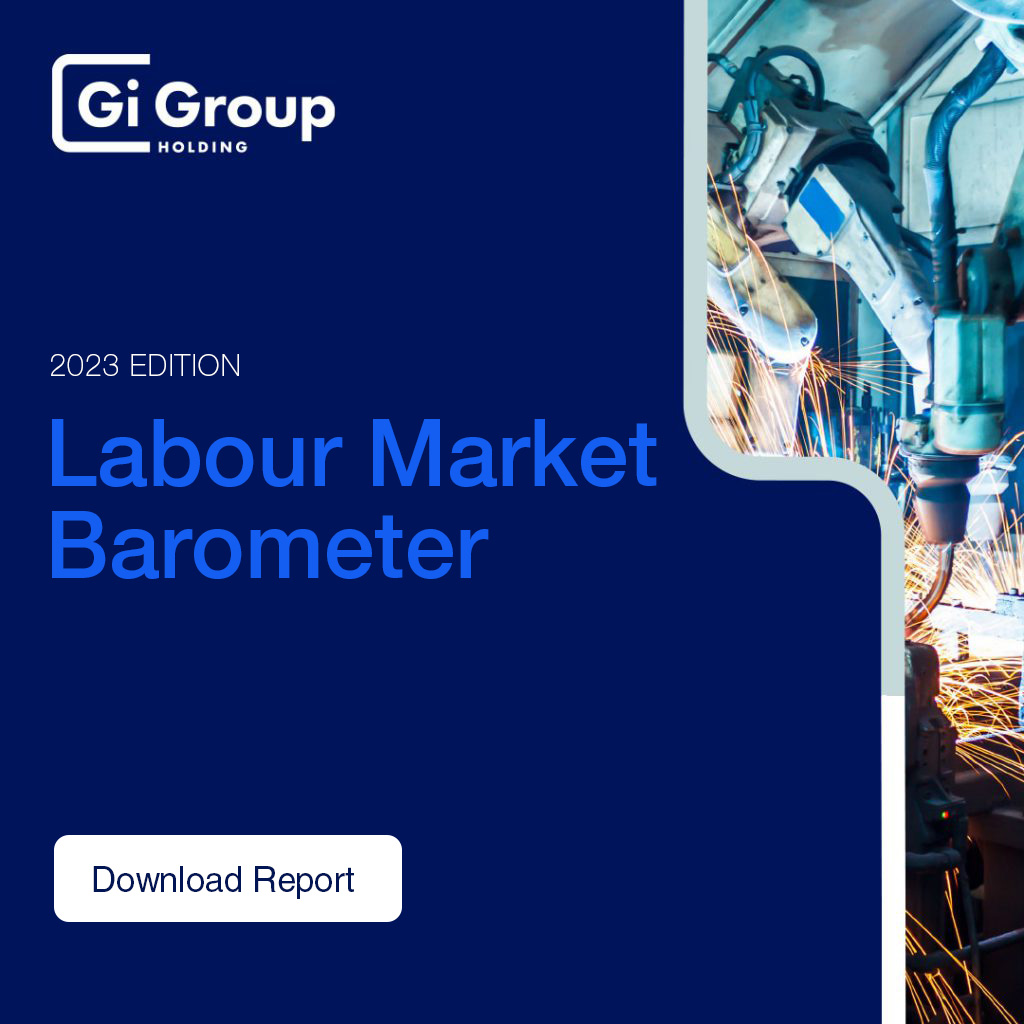
We are pleased to offer you the latest Labour Market Barometer. This is the 17th edition of our report!
This extensive publication, based on a survey commissioned by Gi Group Holding among a group of employees and employers, is a sort of an X-ray of the current situation in the Polish labour market.
Just like every year, we have taken a closer look at the current recruitment plans of employers and professional plans of Poles, as well as the mutual expectations of the two groups with regard to wages. We have also asked about the trending topics – the impact of the recession on the key players of the labour market, staff loyalty to their employers, reskilling and upskilling, and automation.
Enjoy reading our report!
Economic slowdown
Workers and employers are facing rising prices
The economic slowdown, which is the aftermath of the Covid-19 pandemic and the war in Ukraine, has a major impact on the players of the labour market. 40% of companies have been negatively affected by the worsening of the economic situation, of which as many as 74% have pointed to a significant increase in the cost of doing business.
Employers are looking more closely at budgets. As a result, only 26% are planning to increase salaries in the coming months. Employees, in turn, expect their wages to keep up with the rising inflation: as many as 62% are looking forward to getting a pay rise.
62%
are looking forward to getting a pay rise
Recruitment plans
Stability despite recession
Just like last year, 16% of employers declare plans to increase the level of employment, and only 2.5% are planning to launch reduction schemes. Staff are also not afraid of layoffs. However, companies optimise their processes and the use of their resources – including human capital.
78% of businesses are planning to maintain the current level of employment, with as many as 61% striving to reach their goal without new recruitment. Companies have learned their lesson from the pandemic and are less eager to dismiss staff hastily, even in the face of a less stable economic situation.
78%
of businesses are planning to maintain the current level of employment
Employee loyalty
Retention and turnover are the key issues for HR departments
87% of companies have said that they have recently experienced problems related to staff leaving, and as many as 41% do not have specific schemes to counteract employee turnover.
Meanwhile, as many as 66% of the employees surveyed feel dissatisfied with their current job, and 40% plan to change their workplace in the nearest future. Staff are also increasingly proactive when it comes to searching for a new employer. Given the current economic situation and the plans announced by businesses to maintain their employment levels, high retention should become one of the key aspects of the staff-related policy of businesses. Is this really the case?
41%
do not have specific schemes to counteract employee turnover
Reskilling and upskilling
Staff awareness is growing
Upskilling and continuous learning have long been mentioned as key aspects of the modern labour market. Due to the rapidly changing external conditions, progressive digitisation and automation of many processes, they are becoming indispensable for all the players of the job market: for employers – if they want to win the future fight for an increasingly less and less available employee with proper skills and qualifications; for employees – if they do not want to be excluded from the labour market as a consequence of reducing the usefulness of their professional competences. As many as 71% of employees who are afraid of losing their job or planning to change their workplace are ready to change their profession. However, they have certain expectations towards employers in this respect, such as e.g. the guarantee of employment stability, or clear prospects for professional growth. Do entrepreneurs look at this area in a similar way?
71%
of employees who are afraid of losing their job or planning to change their workplace are ready to change their profession
Check the latest survey of the Polish labour market
Download the Labour Market Barometer

